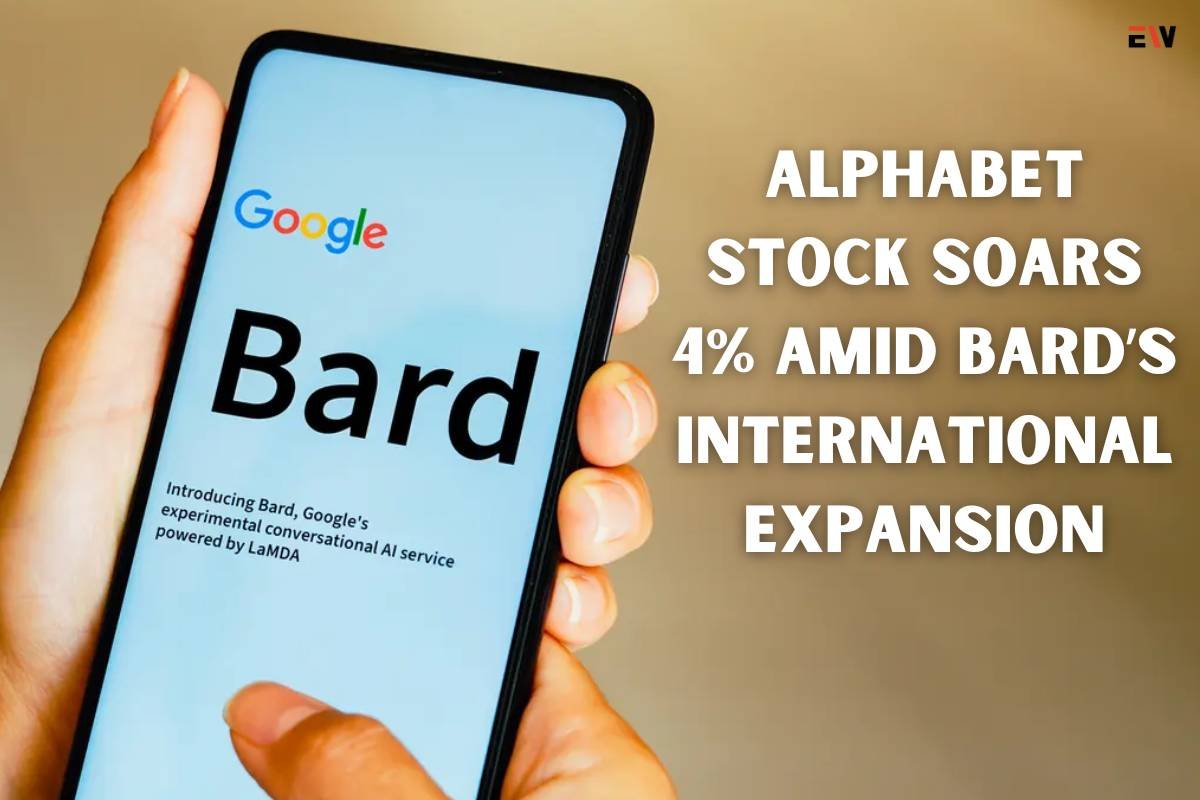Google’s parent company, Alphabet, saw a surge in its stock prices on Thursday, with shares jumping more than 4%. The reason behind the rise was the company’s announcement regarding the expansion of its generative AI-powered chatbot, Bard. The chatbot will now be made available in more countries, and additional features will be added to the software.
New Bard Features
Google revealed that Bard can now communicate in over 40 languages, including Arabic, Chinese, and Spanish. The chatbot is being introduced to regions such as Brazil and Europe. Bard is similar to Microsoft’s Bing and OpenAI’s ChatGPT, as it offers conversational responses to a wide range of queries, from basic conversions to summaries of literary works.
One of the key updates to Bard is the ability for users to adjust the tone of the responses they receive, making them more formal or less formal as desired. Additionally, users can now play audio responses to their requests, and this feature supports over 40 languages.
In addition to these improvements, Bard users can now pin and rename conversations for future reference, making it easier to save and revisit them. Sharing responses with friends and family has also been made simpler. Furthermore, the app allows users to export Python code to platforms like Replit and Google Colab.
Perhaps the most intriguing enhancement is Bard’s new capability to process imported images. Users can now ask the chatbot questions about specific images or request summaries based on what Bard “sees.”
Google vs. Bing
It is worth noting that Google’s Bard is distinct from its Search Generative Experience, an experimental version of Google Search that utilizes AI-generated responses. Both Bard and Bing are competing with traditional search methods, and as generative AI technology improves in responsiveness and accuracy, they are likely to surpass standard search engines.
However, experts and AI researchers caution that the advancement of this technology could lead to the proliferation of disinformation and misinformation. Microsoft founder Bill Gates recently expressed concerns about AI in an op-ed, though he acknowledged that fears surrounding the technology are similar to those observed with previous major technological breakthroughs, including the internet.
Google’s Use of Third Party Mods
Coincidentally, Bloomberg published an article the day before Google’s announcement, raising questions about the company’s use of third-party moderators to vet Bard’s responses. These moderators, employed by firms like Accenture, reportedly face stressful conditions while determining the accuracy of the bot’s answers on a wide range of topics.
The success of Google’s products and their ability to minimize inaccurate responses will ultimately determine how quickly users adopt them as replacements for traditional search engines.










